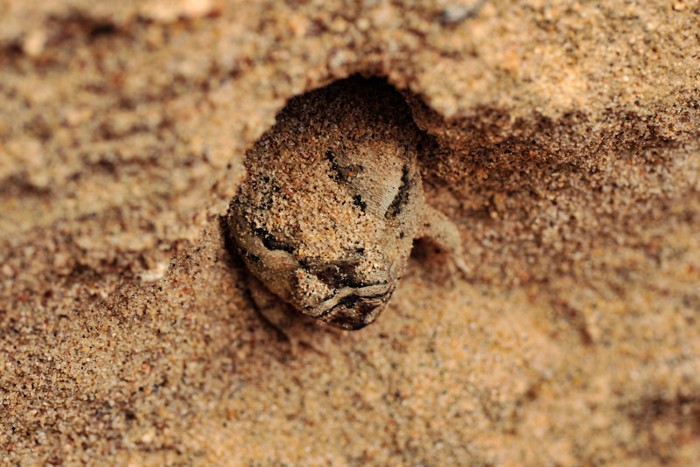Hardy Brazilian frogs dig deep to escape drought

The Muller’s smooth horned frog (Proceratophrys cristiceps) is one of several species that buries itself in the sandy beds of Brazil’s parched rivers to avoid hot, dry conditions. Credit: Carlos Jared
ZOOLOGY 26 MARCH 2019
Amphibians can burrow to depths of more than 1.5 metres in the damp sand underlying dry waterways.
In desert regions of Brazil, frogs must cope with prolonged periods of dry, hot weather, when many rivers dry up completely. Carlos Jared at the Butantan Institute in São Paulo and his colleagues wondered where the amphibians, which have thin skins prone to drying out, go during these droughts.
The answer, it turns out, is straight down.
On expeditions to Brazil’s arid, cactus-dotted Caatinga region, Jared and his team dug into parched channels looking for frogs. Local people, who sometimes dig into dry riverbeds in search of water, helped guide the researchers’ efforts. The team found huge numbers of several species of frog (Proceratophrys cristiceps, Pleurodema diplolister and Physalaemus spp.) buried in the moist, sandy river beds; some had burrowed to depths of more than 1.5 metres.
The animals spend the hot months resting, but remain alert enough to dig further down as the water table falls. The frogs can remain buried for years at a time, waiting for the arrival of the irregular rains, when they emerge, sing and reproduce.
https://www.nature.com/articles/d41586-019-00975
(Short article, no more at link.)
Just the way to do it! Hop Hop Hooray.

